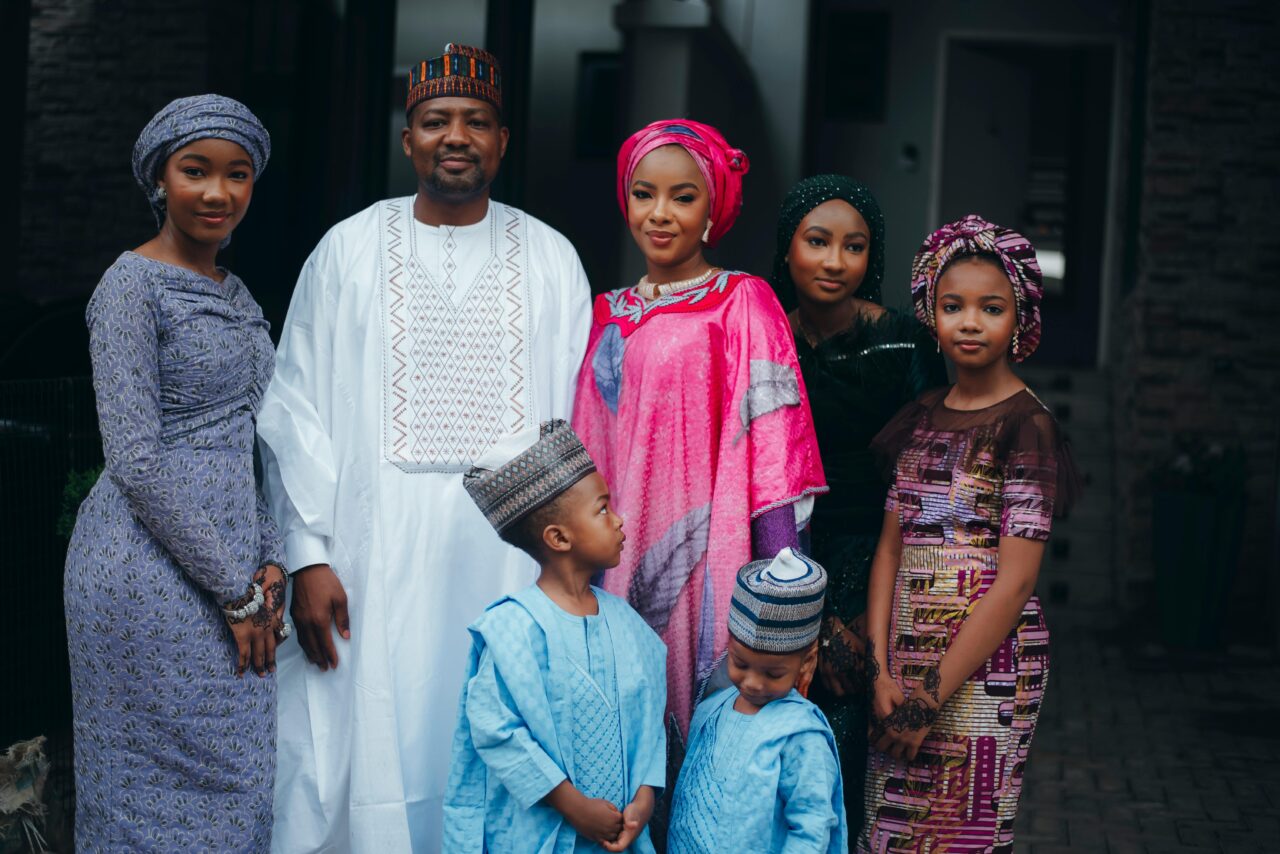
Navigating Gender Roles While Raising Boys and Girls in African Families. Growing up in an African family often means learning early on which roles boys and girls should play. These traditions run deep and can shape how children see themselves and the world.
Today, more parents are questioning if these old rules fit their hopes for their kids’ future. Raising boys and girls in this setting takes patience and a clear sense of what matters most.
This post breaks down how gender roles affect kids as they grow and shows ways families can help both sons and daughters reach their full potential. Parents want the best for their children—it’s about finding what truly helps them thrive.
Understanding Traditional Gender Roles in African Cultures(Navigating Gender Roles in Africa)
Gender roles shape daily life for many African families. These roles date back hundreds of years and often come from deep ties to culture, religion, and survival needs. Boys and girls can be seen as the future protectors and caretakers of the family. Expectations start early, and children hear strong messages about how to act.
These patterns aren’t the same everywhere, but a few main ideas pop up in many places across Africa. Here’s how these roles break down:
Masculinity and Expectations for Boys
Boys are taught from a young age that they carry the family name and legacy. In many African cultures, boys are expected to become leaders—inside the home and beyond. Traits like courage, strength, and emotional control are often praised.
- Leadership: Boys may be told they are “the man of the house” even before their teenage years. In Yoruba culture, for example, firstborn sons often learn to help make key family decisions alongside their fathers.
- Provision: The pressure to provide can start early. Among the Zulu, boys might join fathers in cattle rearing or farming as a rite of passage, learning early that their job is to look after the family’s well-being.
- Stoicism: Showing tough emotions signals maturity. Boys may get told not to cry or complain, with sayings like “A boy must not shed tears”—common among the Igbo.
These expectations help form a picture of manhood that centers on self-reliance and responsibility.
Femininity and Expectations for Girls(Navigating Gender Roles in Africa)
Girls in many African homes learn to care for others and meet family needs. Their training starts at home, with elders teaching the values and skills expected of women.
- Nurturing: Girls often help raise younger siblings. In Nigerian homes, it’s not unusual to see older girls babysitting or cooking for the family before their teen years.
- Domestic Responsibilities: Chores like sweeping, cooking, and fetching water fall mainly to girls. Among Kenyan Kikuyu families, girls might spend hours with their mothers, learning recipes and household management.
- Obedience: Respect for parents and other adults is taught early. Elders often remind girls to “be humble” and “listen quietly,” shaping how they communicate and respond.
In many homes, these expectations exist not just to keep order but to prepare girls for future roles as wives and mothers..
While these roles give structure, they can also limit choices.
The Impact of Gender Roles on Child Development(Navigating Gender Roles in Africa)
How kids see themselves and others often comes from the roles they learn at home. In African families, these roles shape not just day-to-day tasks but also how children learn, feel, and dream about their futures. The way parents and communities handle gender can either build up or box in a child’s sense of self. Here’s how gender roles reach into emotional growth and future plans.
Emotional Expression and Mental Health
Boys and girls can face strong messages about what feelings they can share. Boys are often told to stay strong and quiet, while girls might feel pressure to be soft and caring, even if they’re hurting themselves. These lessons may sound small, but they add up as kids grow.
- Boys sometimes hide sadness or fear because they’re taught to look tough. This can make it hard to ask for help or talk about stress. Boys who keep everything inside may feel lonely or act out their feelings through anger instead.
- Girls might be allowed to show sadness but not anger. If a girl gets upset, she could be told to stay calm or act ladylike. This shapes how girls deal with stress, sometimes making them bottle up big feelings, too.
- Kids who feel boxed in by these rules can struggle with anxiety or feel low about themselves. If your feelings are always “wrong,” it’s easy to think you are, too.
Over time, strict gender rules can build a wall around a child’s mind. Helping kids name and share their feelings can be a door to better mental health.
Educational and Career Aspirations(Navigating Gender Roles in Africa)
Gender roles often steer what children aim for in school and later work. In many African homes, parents may guide boys and girls toward studies and jobs that match old ideas about gender.
- Boys are pushed toward math, science, and leadership, while girls may be nudged into teaching, nursing, or service roles. Sometimes, boys get more support for their studies, from extra classes to praise for big dreams.
- Girls might hear that their main job is to care for family, even if they’re good at science or math. Some girls don’t get the same chances to join clubs or sports, making it hard to try new things or lead.
Every child holds a mix of skills, dreams, and strengths. When gender rules run the show, some of those gifts get shut away. Giving children space to try, learn, and choose their path helps them find what really fits—not just what tradition demands.
Balancing Tradition and Modernity in Parenting Practices
Many African parents want to honor their roots while also hoping their kids have every chance in today’s world. Old beliefs bring comfort and wisdom, but modern life often calls for new thinking, especially around raising boys and girls as both children are theirs and need fairness. Every family feels this push and pull—between grandma’s way and what children see online or at school. How do parents sort out what to keep and what to change?
Challenges Faced by Parents when negotiating between traditional values and modern egalitarian ideals
Living in both old and new worlds isn’t always simple. Parents face daily choices that put tradition and modern thinking at odds. Some of the most common struggles include:
- Different family expectations: Grandparents might hold onto gender rules. They may remind sons to act “like men” or daughters to help in the kitchen. When parents try something else, it can cause tension or even arguments at home.
- Pressure from the community: In many neighborhoods, people talk. If parents raise children in “unusual” ways—like encouraging a son to cry or a daughter to speak her mind—they risk judgment from relatives and neighbors.
- City vs. village: Urban families might be more open to mixing roles, while those in rural areas often stick closely to old ways. This difference can confuse kids who move between spaces, seeing clashing examples from teachers, social media, or extended family.
- School influence: Modern schools may teach boys and girls the same, but expectations at home may not match. Kids get mixed signals and parents feel torn between school advice and family beliefs.
Parents want to do right by their children without disrespecting elders or letting go of beliefs that give life meaning. The struggle is real, but it can spark growth and fresh solutions.
Strategies for Inclusive Parenting(Navigating Gender Roles in Africa)
Parents can combine the best of both worlds without losing what matters most. Here are ways to raise strong, free, and open-minded kids while still respecting family history:
- Talk openly: Share your reasons for breaking old rules or trying new ones. Explain to children and elders why certain changes make sense. Keeping everyone in the loop eases tension and builds understanding.
- Mix up chores and play: Let both boys and girls cook, clean, fix things, and handle money. Rotate chores so everyone learns every skill. When kids see each other do everything, stereotypes fade.
- Encourage emotional honesty: Let boys cry and talk when upset. Let girls show anger or stand up for themselves. Tell both it’s normal to feel big emotions—what matters is how they handle them.
- Support every dream: Celebrate a girl who loves math or a boy who wants to be a nurse. Show pride in all ambitions, not just those that fit old molds. Remind them that family supports them, no matter the field.
- Teach respect for all: Tell children that everyone’s work matters, at home and outside. Stress kindness and respect—for elders, friends, and siblings alike.
- Find common ground: Blend old and new by teaching traditional values like respect, honesty, and love, but ditch rules that put limits on what boys or girls can do.
- Start small: Even gentle changes, like letting a boy serve food or a girl mow the lawn, can shift old patterns over time.
Balancing tradition and modern life isn’t about abandoning customs. It’s about giving every child room to grow while honoring the heart of family values. By taking small steps and keeping the conversation going, parents can raise confident sons and daughters who feel free to be themselves.
Role of Community, Schools, and Media in Shaping Gender Roles
No child grows up in a vacuum. Gender roles are shaped not just by parents, but by the wider world around the family. Communities, schools, and media all play big roles in setting the norms that kids follow. For African families, these influences can either push the old ways harder or open new doors for boys and girls.
Phones, TVs, and the internet bring endless images and stories that shape how boys and girls see themselves.
Families can’t block out every message, but they can talk about what they see and guide kids toward healthier ideas. Sometimes, turning on a new show or following different stories online sparks the best talks about what’s possible.
Gender roles don’t stand still. As communities, schools, and media shift, African families get more chances to help their children grow into confident, open-minded adults ready for any path.
Conclusion(Navigating Gender Roles in Africa)
Raising boys and girls in African families calls for honesty, patience, and a clear sense of what really matters. Giving children space to try new things while respecting traditions helps them grow into strong, well-rounded adults. It takes teamwork from parents, schools, and the wider community to challenge old habits and create better examples.
Families do not have to give up their roots to support their children’s dreams. Small changes at home—like sharing chores and talking openly—set the stage for real progress. The journey is ongoing, and every step towards fairness makes a difference.
Thanks for reading and being part of the conversation. Share your experiences, and keep talking with others. Together, we shape a future where every child is free to reach their full potential.



Add comment